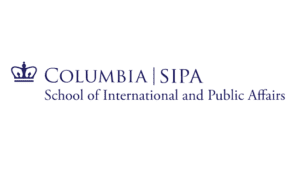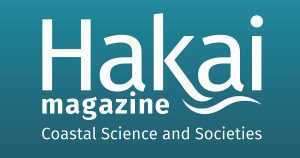WHOI in the News
Listen: Scientists Are Recording Ocean Sounds to Spot New Species
How about 10% of the oil from Deepwater Horizon oil spill was eaten by the sun
Warming Trends: Extracting Data From Pictures, Paying Attention to the ‘Twilight Zone,’ and Making Climate Change Movies With Edge
Right whales giving birth a cause for excitement, but not enough to save endangered species
Rising temperatures a boon for harmful bacteria in Cape Cod’s fresh and salt water
From the toxic scum on ponds and lakes to the nuisance blooms that can shut down vital desalination plants providing water to millions, the Cape Cod region — and the world, is increasingly tuned into the problems presented by Harmful Algal Blooms.
Robot designed by Texas university to explore underwater glacial walls to monitor climate change
What We Know About Oceans and Climate Change
Despite threats from fellow fishermen, lobstermen press Mass. to allow ropeless fishing in closed areas
To protect right whales, some areas along the coast, such as Cape Cod Bay, have since 2015 been closed to lobster fishing between February and May, when large numbers of them feed in those waters.
On Cape Cod, the latest barrage of wind and waves, exacerbated by climate change, turns concern to desperation
How a colossal block of ice became an obsession
Woods Hole report identifies concerns, possible solutions for harmful algae blooms
Whales untangled? State contemplates opening closed areas to fishermen using ropeless gear
Because scientists have determined that the human impact on right whales needs to be limited to less than one fatality a year if the species is to avoid extinction, regulators have been unwilling to open closed areas to fishermen, even those using ropeless technology.
11 epic mysteries scientists totally can’t solve
As you dive deeper into the ocean, less and less sunlight shines through, and about 200 meters beneath the surface, you reach an area called the “twilight zone.”
In a record-breaking year of weather, signs of a changed world
However it is measured, these days — in a world that has warmed 1.1°C over preindustrial times, thanks to the burning of fossil fuels — the symptoms of our warmed and warming planet became impossible to ignore in the last year, as extreme events ramped up in frequency and severity across the globe.
11 epic mysteries scientists totally can’t solve
Mayor Bill de Blasio Announces Finalists to Anchor City’s Climate Solutions Center on Governors Island
Mayor Bill de Blasio and The Trust for Governors Island (the Trust) today announced the next steps in the City of New York’s initiative to establish a global Center for Climate Solutions on Governors Island.
The First U.S. Human-Operated Submersible Changed the Course of Oceanography Alvin was built by researchers at Woods Hole
Thanks to Alvin, scientists were able to study the effects of pressure on seafloor microbes and discovered hydrothermal vents that help regulate ocean chemistry and support ecosystems.
A Bright, LED-Lit Future for Ocean Sciences
Recently, there has been a push in the oceanographic community to replace hard-wired, fiber-optic communication tethers connected to instruments with wireless, through-water communications. Think Wi-Fi for the ocean.
From icebergs to smoke, forecasting where dangers will drift
Some of these drift detectives want to know if large icebergs threaten offshore oil platforms. Others hope to track plumes of polluted air or water — and determine where they’re coming from. The work is challenging. It also can be very rewarding.
Ambergris: What fragrant whale excretions tell us about ancient oceans
Ambergris also contains historical information about the oceans, especially the marine species foraged by the whales that produce it. It could even give insights into how these animals might respond to the challenges they face as a result of climate change.
WHOI scientist wrote a book on right whales’ possible extinction. Why you should know him.
In a First, Alaska’s Arctic Waters Appear Poised for Dangerous Algal Blooms
A Critical Ocean Current Is Speeding Up, With Potential Global Consequences
A deadly disease is wiping out coral in Florida and the Caribbean
Researchers are racing to stop stony coral tissue loss disease, which is killing some of the region’s oldest and largest corals.












